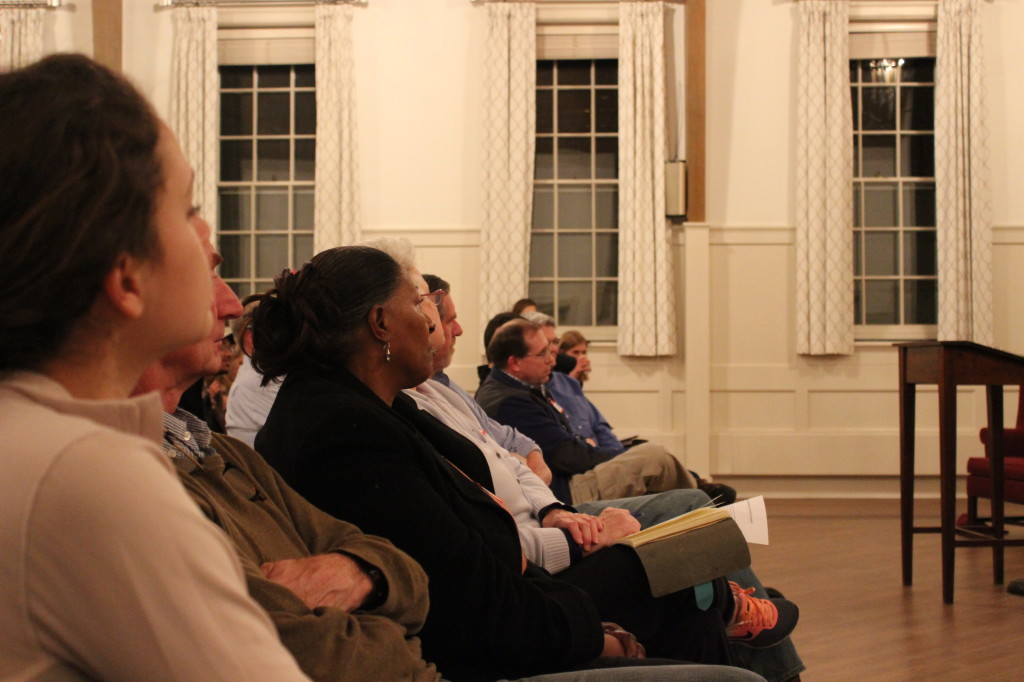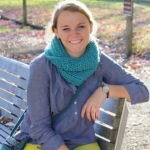"Where Do We Go From Here?" - A Reflection On Race & Mutuality by Carly Misenheimer
 On a Friday afternoon this past summer, my friend and I took a leisurely walk through the neighborhoods behind West Main Street. We wove through the streets, picking out houses with colorful doors and imagining what raising a family in this neighborhood would be like. As we were walking, we approached an African American woman standing in the middle of the street, staring intently at a vacant house overgrown with weeds and vines. She struck up a conversation, explaining to us that this was her home in the 1960s. She recalled the games that her siblings played in the backyard and pointed out all of the things that had and had not changed about the property. She then explained the story of her eviction—how her family was uprooted from this home and sent to live in a new housing development. We walked with her through rows of houses hearing the stories of the families who once inhabited them. As we dropped her off at her current home, just streets over, the Spirit prompted us to hold hands and pray together. We embraced and went our separate ways, my friend and I recapping the conversation and discussing how moving this woman’s story had been. It was not until last week’s panel discussion, “Where Do we go from Here? Race and Mutuality in the Wake of Ferguson,” that I realized what a significant encounter this had been for both parties.
On a Friday afternoon this past summer, my friend and I took a leisurely walk through the neighborhoods behind West Main Street. We wove through the streets, picking out houses with colorful doors and imagining what raising a family in this neighborhood would be like. As we were walking, we approached an African American woman standing in the middle of the street, staring intently at a vacant house overgrown with weeds and vines. She struck up a conversation, explaining to us that this was her home in the 1960s. She recalled the games that her siblings played in the backyard and pointed out all of the things that had and had not changed about the property. She then explained the story of her eviction—how her family was uprooted from this home and sent to live in a new housing development. We walked with her through rows of houses hearing the stories of the families who once inhabited them. As we dropped her off at her current home, just streets over, the Spirit prompted us to hold hands and pray together. We embraced and went our separate ways, my friend and I recapping the conversation and discussing how moving this woman’s story had been. It was not until last week’s panel discussion, “Where Do we go from Here? Race and Mutuality in the Wake of Ferguson,” that I realized what a significant encounter this had been for both parties.
Last Thursday night, Theological Horizons hosted a panel discussion on Race and Mutuality at Westminster Presbyterian Church. The room was filled with people from different generations—college students, young professionals, and retirees. While most of the attendants were white, it seemed that everyone in the room was eager to learn about how they should live with grace and responsibility toward their neighbors following the events at Ferguson.
During the Q and A period, an elderly African American man rose to mention the effects of “Vinegar Hill” on race relations in Charlottesville. Chief Timothy Longo responded to this man’s claim, stating that the law enforcement in Charlottesville is working to educate its members on the city’s racial history in hopes of bettering relations within the community today. Chief Longo spoke on the problem of broken trust, and the solution that may be found in a community in which trust is regained. Meanwhile, I was nudging the person next to me asking her, “What is Vinegar Hill?”
Second year student and panelist, Aryn Frazier, made note that nothing in society happens in a vacuum. Like Longo said, race relations in Charlottesville are rooted in a history of broken trust and frayed relationships. It is important that we know the context of the racial situation in which we are living so that we may act appropriately and responsibly. I came home from the panel and began researching the story of “Vinegar Hill.” I found that this was the name given to the gentrification project of the 1960s that my summer friend had described to me in vivid detail. Had I missed this opportunity to stop and hear her story, I would never know so intimately what this broken situation entailed. And she may have never known that there are 21-year-old white girls who are eager to listen.
As we move forward in the community of Charlottesville following the events that happened in a neighborhood not unlike our own, it is important that we stop to hear the stories of those who are different from us. Thursday’s meeting on Race and Mutuality was a beautiful beginning to an ongoing conversation; and I pray that it will develop into a dialogue that outgrows its predominately white, middle-class group of attendants. Panelist Tracy Howe Wispelwey left us with the question, “Do we belong to one another?” As we move forward in hopes of reconciliation and peace, our community must learn what it means to belong to one another—to carry the burdens of the neighbors we do not yet know. This responsibility rests on people from all neighborhoods—from student dorms on McCormick to the houses on Prospect. In order to live in mutuality, we must take the risk of knowing and being known. Only then may we write for our community a better story.
The Story of Vinegar Hill neighborhood of Charlottesville narrated by Mr. John Gaines and Ms. Ann Carter:
 Carly Misenheimer is a fourth year from High Point, North Carolina. She is a Religious Studies Major, and she is writing her Distinguished Majors Thesis on the language of naming God in Feminist Theology. She hopes to attend Divinity School after graduation. She leads Young Life College at UVA, and she enjoys singing, hiking the Blue Ridge Mountains, Cheerwine and spontaneity.
Carly Misenheimer is a fourth year from High Point, North Carolina. She is a Religious Studies Major, and she is writing her Distinguished Majors Thesis on the language of naming God in Feminist Theology. She hopes to attend Divinity School after graduation. She leads Young Life College at UVA, and she enjoys singing, hiking the Blue Ridge Mountains, Cheerwine and spontaneity.
